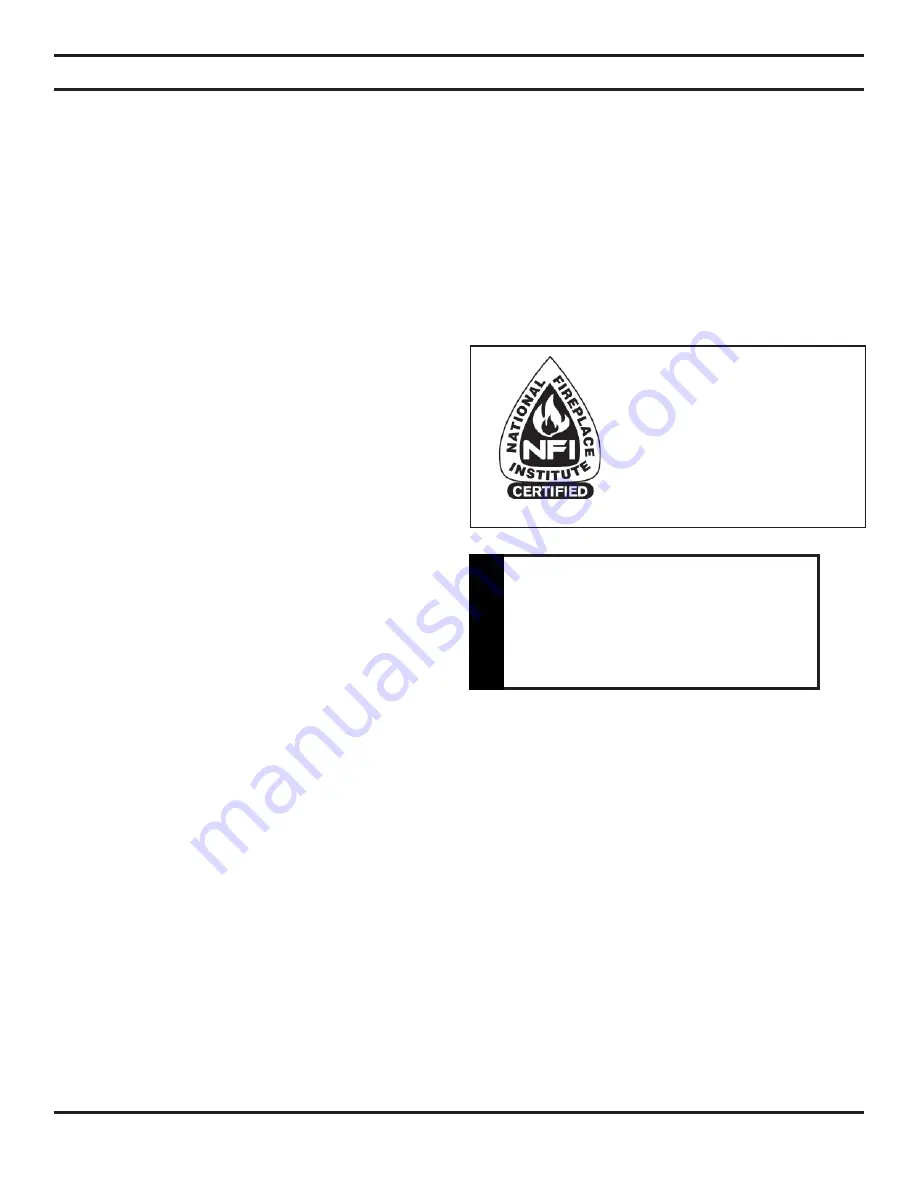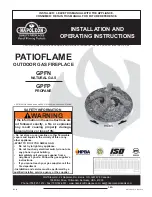
4
61D1013
IMPORTANT SAFETY INFORMATION
Continued from page 3
16. Keep room area clear and free from combustible materi-
als, gasoline and other flammable vapors and liquids.
17. Unvented gas heaters are a supplemental zone heater.
They are not intended to be a primary heating appli-
ance.
18. Unvented gas heaters emit moisture into the living area.
In most homes of average construction, this does not pose
a problem. In houses of extremely tight construction,
additional mechanical ventilation is recommended.
19. During
manufacturing, fabricating and shipping, various
components of this appliance are treated with certain
oils, films or bonding agents. These chemicals are not
harmful but may produce annoying smoke and smells
as they are burned off during the initial operation of the
appliance; possibly causing headaches, or eye or lung
irritation. This is a normal and temporary occurrence.
The initial break-in operation should last two to three
hours with the burner at the highest setting. Provide
maximum ventilation by opening windows or doors to
allow odors to dissipate. Any odors remaining after this
initial break-in period will be slight and will disappear
with continued use.
20. Input ratings are shown in BTU per hour and are for
elevations up to 2,000 feet. For elevations above 2,000
feet, input ratings should be reduced 4 percent for each
1,000 feet above sea level. Refer to the National Fuel
Gas Code.
21. The appliance and its appliance main gas valve must be
disconnected from the gas supply piping system during
any pressure testing of that system at test pressures in
excess of 1/2 psig (3.5 kPa).
22. The appliance must be isolated from the gas supply
piping system by closing its equipment shutoff valve
during any pressure testing of the gas supply piping
system at test pressures equal to or less than 1/2 psig
(3.5 kPa).
23. Do not use this room heater if any part has been under
water. Immediately call a qualified service technician
to inspect the room heater and to replace any part of the
control system and any gas control which has been under
water.
24. Never burn solid fuels in a fireplace where a unvented
room heater is installed.
25. Always have a fireplace screen in place when the appli-
ance is in operation, and unless other provisions for
combustion air are provided, the screen shall have an
opening(s) for induction of combustion air.
26. Do not fill spaces around the firebox with insulation or
other materials. These spaces must be maintained to pre-
vent the firebox from coming in contact with combustible
materials.
www.nfi certifi ed.org
We suggest that our gas hearth
products be installed and
serviced by professionals who
are certifi ed in the U.S. by the
National Fireplace Institute
®
(NFI) as Gas Specialists.
Never connect unit to private
(non-utility) gas wells. This
gas is commonly known as
wellhead gas.
W
ARNING


































